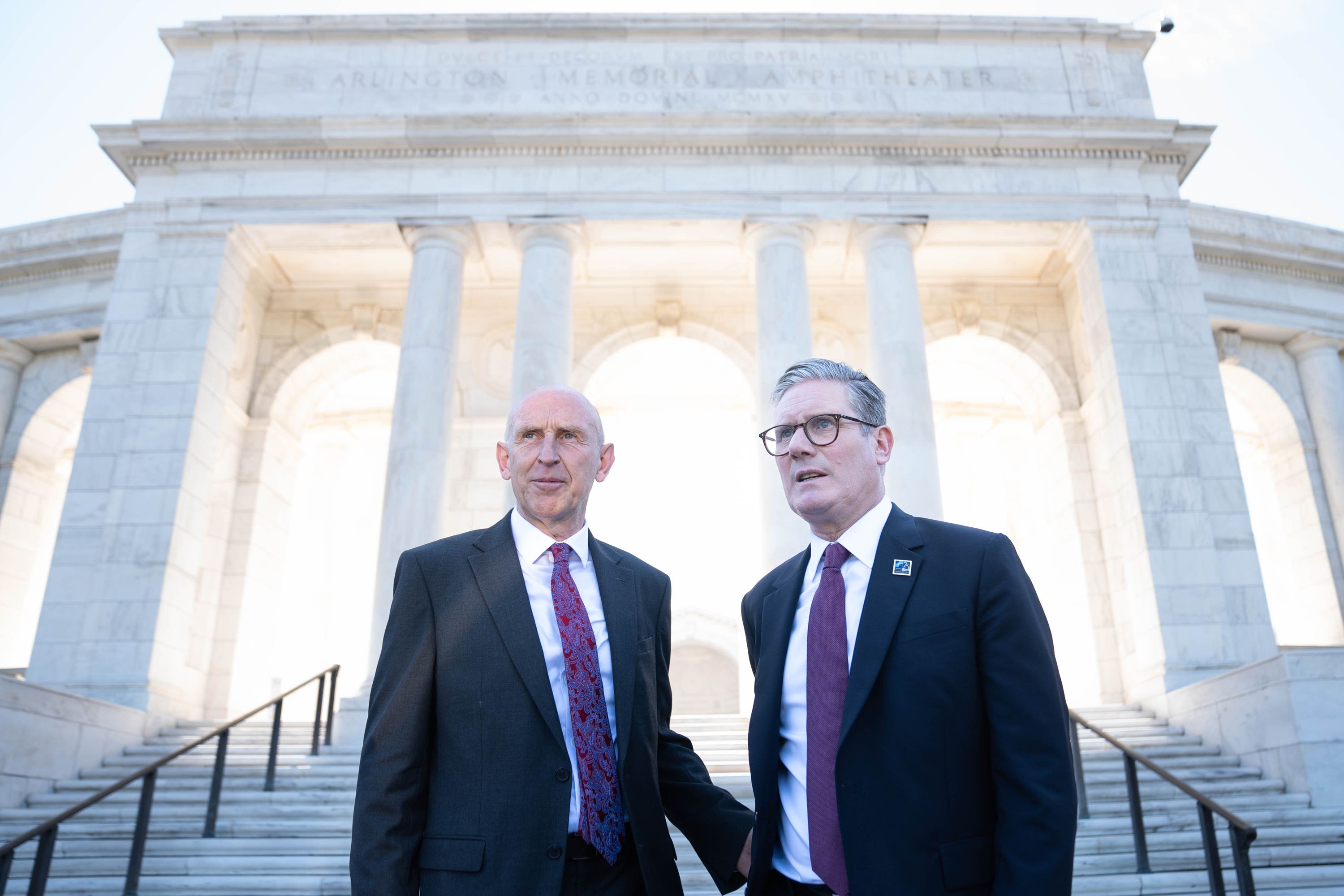Can Britain’s new defence secretary be trusted not to waste his extra cash?
The UK is already the world’s sixth biggest spender on defence – and Keir Starmer has pledged to push the budget up to 2.5 per cent of GDP, writes James Moore. But can the MoD be trusted not to waste the extra funds?


Sir Keir Starmer used this week’s trip to Washington for a major Nato summit to declare a “cast iron” commitment to increase defence spending to 2.5 per cent of gross domestic product (GDP), from just over 2 per cent.
What isn’t so clearly defined, however, is how long that might take. Rishi Sunak had targeted 2030, and the pressure on the new prime minister to deliver a timeline for this goal is mounting.
The conclusion drawn from Russia’s invasion of Ukraine, coupled with the distinct possibility of the US adopting a more isolationist foreign policy in the event of a second Trump presidency, is that Europe has to do much more to look after itself.
The UK is already doing its bit on that front. According to the Stockholm International Peace Research Institute, it is already the world’s sixth biggest spender on defence and Europe’s second after only Russia and ahead of Germany, Ukraine and France respectively.
But all this extra investment coming the way of the Ministry of Defence (MoD) raises an important question: how exactly is the money going to be spent?
The risk is that the MoD, with several hundreds of millions of unspent cash, wastes it on questionable kit. History tells us that the department has been quite good at pouring cash down the drain.
Labour has made a point of highlighting the department’s profligacy. It produced the “Dossier of Waste in the MoD 2010–2021” in 2022, in which it accused the MoD of wasting at least £13 billion in taxpayers’ money since 2010.
The MoD, it continued, “manages one in five of the government’s major projects (36 of 184), at a cost totalling £167bn … None of its 36 major projects are rated ‘green’ – meaning that the project is on time and in budget – which makes it the worst performing department in Whitehall.”
The National Audit Office, meanwhile, has said that while there have been improvements, “many long-standing weaknesses with its inventory management remain”, adding that “the MoD is not yet set up to deliver value for money from its inventory management”.
Such damning conclusions about the department’s wastefulness are not hard to find.
It would be wise for the new defence secretary to look to Washington for a lesson in how not to manage the budget. Last year, senators Chuck Grassley and Bernie Sanders introduced a bipartisan push to audit the Pentagon and “curb wasteful spending”.
Their findings did not make easy reading. From accusations of buying “$14,000 toilet seats” to “losing track of warehouses full of spare parts”, Grassley pointed out that the US Department of Defence had in the previous year “failed its fifth audit and was unable to account for over half of its assets”. It would be funny, were the global security stakes not so high.
The UK’s budget is only a fraction of America’s, and it doesn’t quite have the latter’s untouchable status – outside a few ultra-liberal enclaves, no candidate for office in the US would dare to suggest cutting it.
But the MoD is still pretty good at wasting money, before we even consider the issue of the cost-overruns endemic to the sector. The University of Portsmouth, for example, recently highlighted the Royal Navy’s two Queen Elizabeth-class aircraft carriers which “cost nearly double the original £3.9 billion estimate”. The first “did not come into service until 2017”, having been due in 2012. And is it really aircraft carriers we need in the era of drones, AI and computer warfare?
Even if Healey proves to be a government superstar, he isn’t going to fix the MoD’s problems overnight. He will need to acknowledge the growing threats to Britain’s security while ensuring he remains fiscally responsible – wastefulness will not be well received by the electorate, particularly in an era of tighter purse strings.






Join our commenting forum
Join thought-provoking conversations, follow other Independent readers and see their replies
Comments